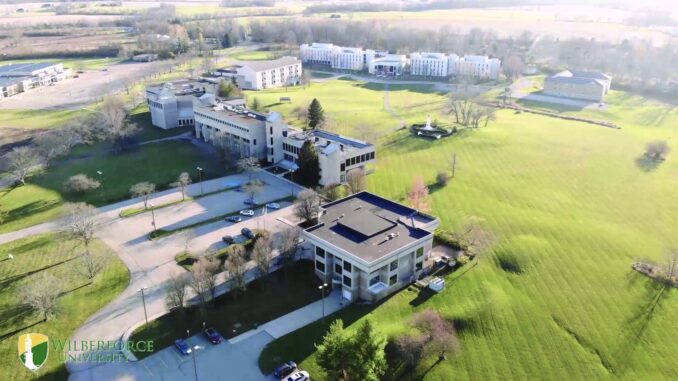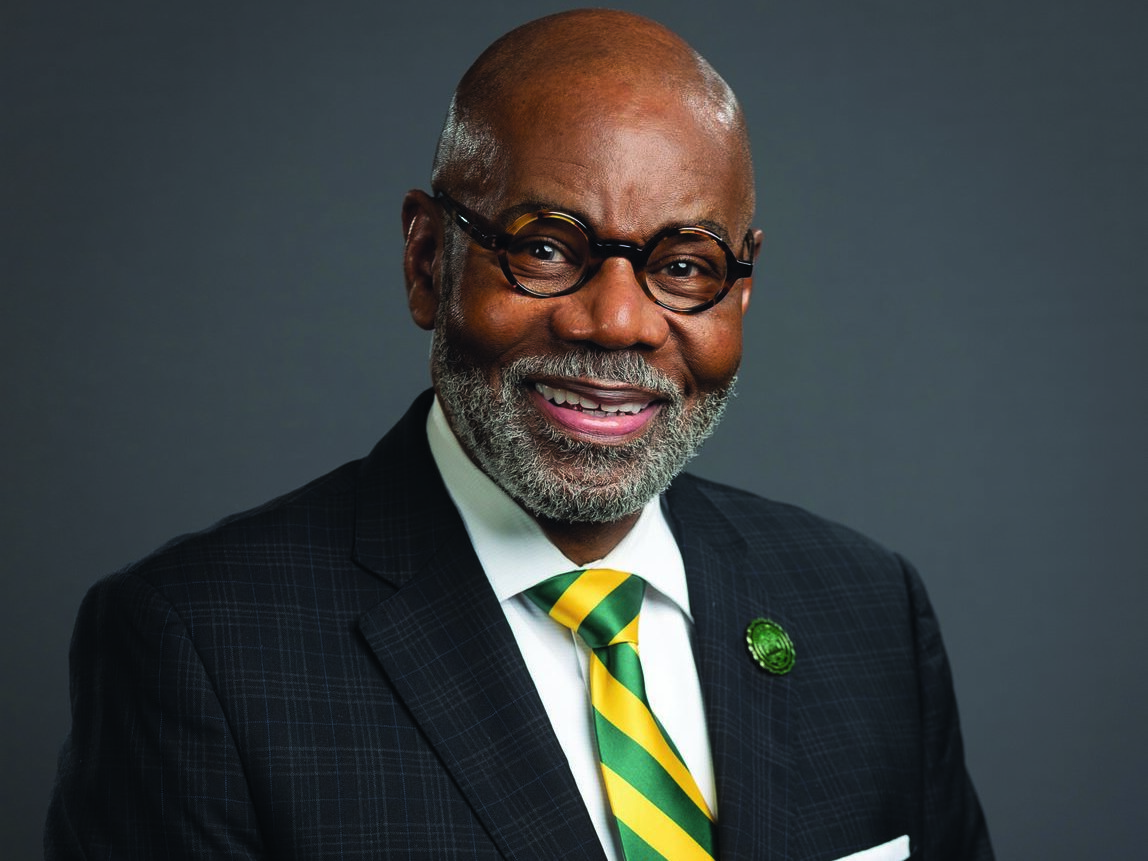
Wilberforce speaker series named for unsung hero of Civil Rights Movement
By Val Hunt Beerbower
College campuses across the country have historically been places where new ideas incubate. But often new ideas clash with established ideologies and traditional practices, making college campuses a hotbed for activism and disruption. For example, in the 1930s, at Wilberforce University in Wilberforce, Ohio, student Bayard Rustin was outspoken in his demands for equality. During his time as a Bulldog, Rustin discovered what difficulties might lie ahead for those who challenge the status quo. Five years after he was expelled from the university, Rustin helped organize the March on Washington in 1941.
Today, Wilberforce pays homage to this champion of racial, civil and gay rights through its Bayard Rustin Lecture Series, sponsored by Dominion Energy, established in 2017 by President Dr. Elfred Anthony Pinkard.
“The series was conceived as a way to acknowledge the life and legacy of Bayard Rustin as a pioneering human rights and social justice advocate and unsung hero of the modern Civil Rights Movement,” Pinkard says. “It was also established to remind students of the noteworthy individuals who have attended Wilberforce and to underscore Wilberforce’s historic and contemporary imperative for social justice and social change.”

The university brings in individuals known for thought-provoking dissertation or their activist roles in society. Students have the opportunity to engage in stimulating sessions that address current crises, like mental health. Previous speakers include Dr. David Marion, co-owner of a private mental health clinic serving clients in Alabama and Mississippi, and the national president of Omega Psi Fraternity, and local actor, writer and producer Felicia Chappelle. Additional Rustin speakers include Emmy-winning actor Robert Ri’chard and Jarrett Hill, a Los Angeles-based, award-winning journalist and media consultant.
Pinkard says Rustin’s legacy is important, first because of his contributions to social justice, and also because his expulsion serves as a critical lesson to understand the value of informed and disciplined disruption when confronted by injustice, unfairness and the desire to make circumstances better.
“Bayard Rustin was a brilliant strategist and passionate human rights advocate and social change agent whose life and contributions are not widely known or appreciated,” Pinkard says. “Given Wilberforce’s continued interest in educating and shaping our students as disruptors, thought-leaders and social change agents, Bayard Rustin’s life and legacy serve as a wonderfully appropriate model for this speaker series.”
Pinkard says, if Rustin were alive today, he’d likely be “disappointed and aghast at the vitriol and uncivil rhetoric and behavior, but he would also be encouraged by the willingness of many young people to transcend differences and engage each other as members of one human family.”
Future generations willing to treat others with respect and dignity are the building blocks for a more equitable America, and Pinkard says Rustin would be proud to see his former stomping grounds still exist as a vibrant intellectual and activist community in spite of the many challenges it has faced.
“He would celebrate the resilience of Wilberforce,” he says, “And he would be excited and moved by young African American students engaging in thoughtful dialogue and action to address this nation’s lingering social ills.”



